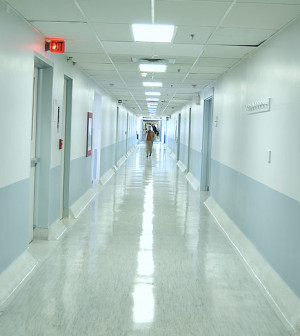- Could Your Grocery Store Meat Be Causing Recurring UTIs?
- Are You Making This Expensive Thermostat Error This Winter?
- Recognizing the Signs of Hypothyroidism
- 10 Strategies to Overcome Insomnia
- Could Artificial Sweeteners Be Aging the Brain Faster?
- Techniques for Soothing Your Nervous System
- Does the Water in Your House Smell Funny? Here’s Why
- Can a Daily Dose of Apple Cider Vinegar Actually Aid Weight Loss?
- 6 Health Beverages That Can Actually Spike Your Blood Sugar
- Treatment Options for Social Anxiety Disorder
Health Highlights: Feb. 18, 2016

Here are some of the latest health and medical news developments, compiled by the editors of HealthDay:
Behavioral Therapy Beats Drugs as First-Line Treatment for ADHD: Researchers
Behavioral therapy should be used before medication in treating children with attention-deficit hyperactivity disorder (ADHD), according to new research.
One paper found that children’s ADHD problems improve faster when their first therapy is behavioral — such as being taught basic social skills — rather than medication, The New York Times reported.
Another paper said using behavioral therapy first is less expensive over time.
Medications were most effective when used as supplemental, second-line treatment for children with ADHD who required the drugs. In many cases, the drugs were effective at doses lower than normally prescribed, according to the findings in the Journal of Child & Adolescent Psychology.
If the effectiveness of the behavior therapy-first approach is confirmed in larger studies, experts say it could change standard medical practice for children with ADHD, which currently favors medications as first-line treatments.
“We showed that the sequence in which you give treatments makes a big difference in outcomes,” study co-leader William Pelham Florida International University, told The Times.
“The children who started with behavioral modification were doing significantly better than those who began with medication by the end, no matter what treatment combination they ended up with,” he said.
However, some experts noted that the researchers focused on behavior and not on other issues, such as attention and learning problems, that can quickly improve with drug treatment.
“I think this is a very important study, and the take-home is that low-cost behavioral treatment is very effective, but the irony is that that option is seldom available to parents,” Mark Stein, a professor of psychiatry and pediatrics at the University of Washington, told The Times.
Copyright © 2026 HealthDay. All rights reserved.










